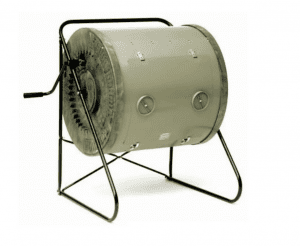
Agriculture
January 11, 2024
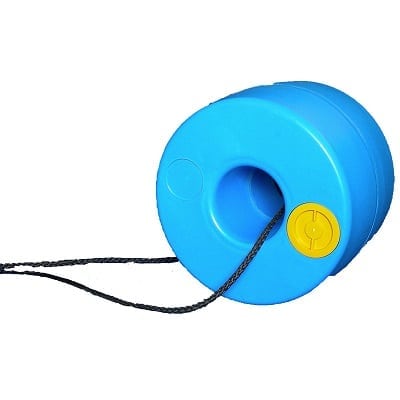
Updated on June 23, 2024
·Created on August 27, 2015
Q Drum is a rollable container for water transport.
The Q Drum is a donut-shaped plastic container which when full holds 50 litres of water. It has a design of the longitudinal shaft or central hole, through which a rope is tied, to pull or roll the drum along all terrain types.
Target SDGs
SDG 6: Clean Water and Sanitation
Market Suggested Retail Price
$65.00
Target Users (Target Impact Group)
Household, Community
Distributors / Implementing Organizations
It has been distributed via partner NGOs of the marketplace - Kopernik, including Centro Feto.
Competitive Landscape
Direct competitors include Wello WaterWheel.
Regions
Africa, East Asia
Countries
Congo (Kinshasa), Mozambique, South Africa
Manufacturing/Building Method
Rotational molding
Intellectural Property Type
Patent
User Provision Model
NGOs distribute Q-Drums
Distributions to Date Status
Unknown
Container Volume (Liters)
50 L
Handle for pouring (yes/no)
No
Transport Method
Rollable or pullable
Design Specifications
Design:
* Capacity: 50 Litres
* Height: 36 cm
* Diameter: 50 cm
* Lid Size: 12 cm Diameter
* Material: Linear Low Density Polyethylene (LLDPE)
* Material Thickness: 4mm
* Actual Weight: 4.5 kg
* Filled Weight: 54.5 kg
* Stacking: Up to 40 filled drums
Q Drum use is shown in the YouTube link found in the references section.
Technical Support
The designer claims that the Q Drum construction material (LLDPE) makes it practically indestructible and that the simple design ensures ease of use. No technical support services are indicated.
Replacement Components
The Q Drum has no removable handles or other metal attachments that could detract from its intended purpose if lost or broken.
The rope can be repaired on the spot or, if lost, be replaced by a leather thong, woven plant substance or any other appropriate material.
Lifecycle
Approximately 8 years under normal conditions.
Manufacturer Specified Performance Parameters
Easy to use by women and children without significant strain. Long-lasting in rough terrain.
The longitudinal shaft also serves as a vertical support structure, which provides added strength and increases the top load compression resistance when filled containers are stacked on top of each other.
Vetted Performance Status
Drums are stack-able, up to 40 high when filled. Most existing containers can only be stacked two or maybe three high when filled with heavy fluids or other substances such as chemicals for the agricultural industries. In a SABS (South African Bureau of Standards) compression test performed on the Q Drum, the maximum load reached before collapse was 3.7 tons, which equates to 40 full containers stacked approximately 25 metres high. This exceeds the international stacking requirements a number of times, making Q Drum an easy vessel to store and transport in large quantities.
Safety
It is hazardous to move at high speeds down inclines with the Q Drum.
Complementary Technical Systems
None
Academic Research and References
Danis, C., Bailey, M., Christensen, J., Ellis, J., Erickson, T., Farrell, R., Halverson, C., and Kellogg, W., Social Computing Applications for the Next Billion Users, IBM T.J. Watson Research Center.
Bolton, Sally. 2011. Oe-Noah Revisited. Kopernik in Action (blog). March 7, 2011.
Water Drum Eases Burden – Rolex Awards. 1996. Rolex.org.
Q Drum, the Rollable Water Container for Developing Countries – About. n.d. www.qdrum.co.za.
Ge, Shen. 2022. Sustainability: Q Drum, Rollable Water Container. Impact Hound. October 18, 2022.
A Trifilm Story the Q Drum. 2015. Fernanda Pizarro.
Compliance with regulations
In a SABS (South African Bureau of Standards) compression test performed on the Q Drum, the maximum load reached before collapse was 3.7 tons which equates to 40 full containers stacked approximately 25 metres high, which meets regulations.
Evaluation methods
Field trials, user feedback and compression testing.
Other Information
Other uses include: Camping and Outdoor Life, Military, Agriculture, Mining, Harbours & Marinas, Natural Disasters, Disaster Relief Aid.

Agriculture
January 11, 2024
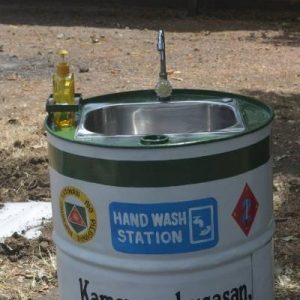
Agriculture
January 17, 2024
Implemented by
Philippine Army
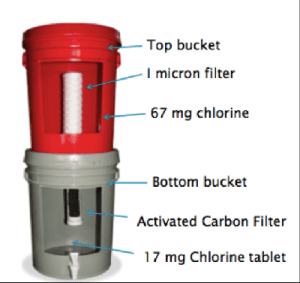
Agriculture
January 24, 2024
Implemented by
Gift of Water
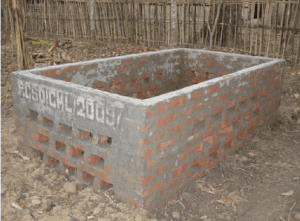
Agriculture
January 17, 2024
Implemented by
Narayan Deotao Pandharipande
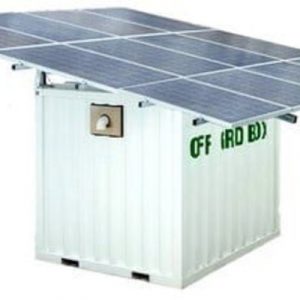
Agriculture
December 18, 2024
Implemented by
OffGridBox™
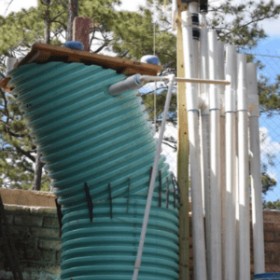
Agriculture
January 18, 2024
Implemented by
Agua Clara LLC

Agriculture
January 26, 2024
Implemented by
Warka Water
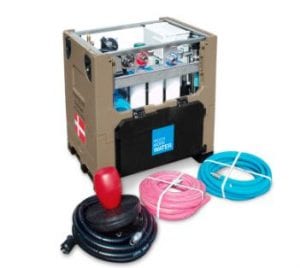
Agriculture
January 26, 2024
Implemented by
MuchMoreWater
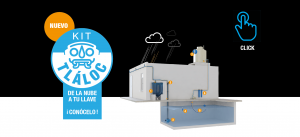
Agriculture
January 30, 2024
Implemented by
IslaUrbana
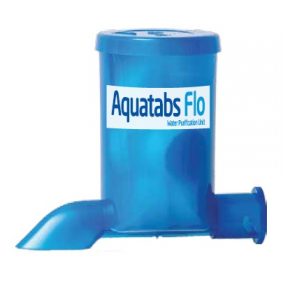
Agriculture
January 27, 2024
Implemented by
Medentech Ltd
Have thoughts on how we can improve?
Give Us Feedback